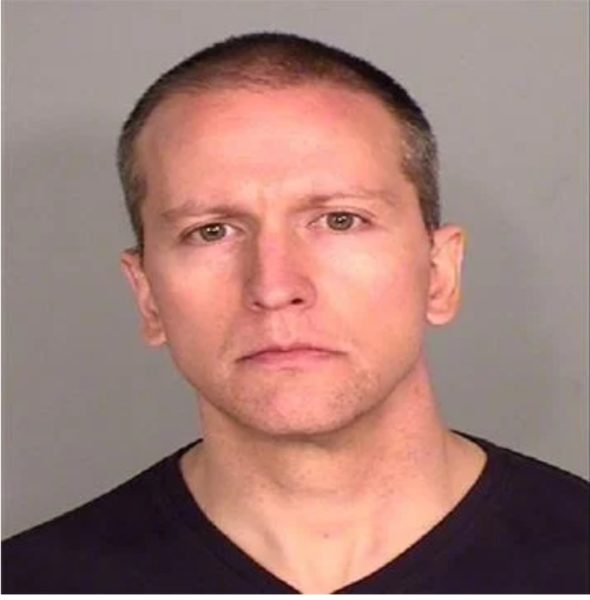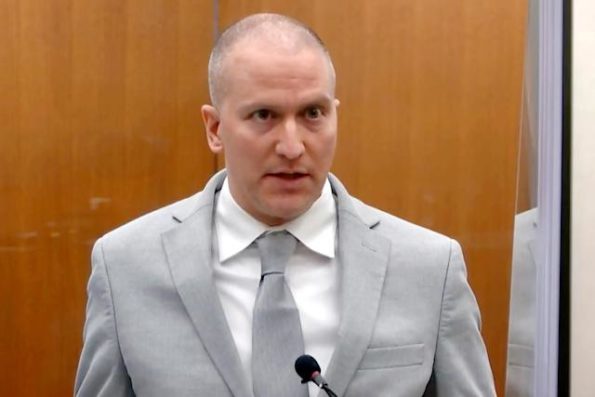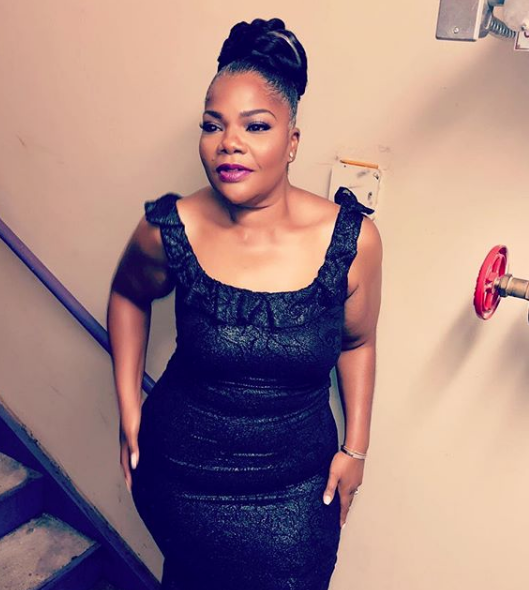Derek Chauvin & The City Of Minneapolis Face Two New Lawsuits Over Ex-Cop’s Alleged Excessive Force Behavior

Derek Chauvin
Derek Chauvin & The City Of Minneapolis Face Two New Lawsuits Over Ex-Cop’s Alleged Excessive Force Behavior
The city of Minneapolis and former Minneapolis police officer, Derek Chauvin, has just been hit with two federal lawsuits over incidents stemming back to 2017.
On Tuesday (May 31), two Minneapolis residents filed federal civil rights lawsuits against the city of Minneapolis and Derek Chauvin, ex-Minneapolis Police Department officer that was convicted for the murder of George Floyd. Both lawsuits allege that the former officer used excessive force during the separate encounters, including kneeling on their necks — the same way he did when he killed George Floyd.

George Floyd, Derek Chauvin
Both lawsuits from the Plaintiffs claim racism. The Plaintiffs, Zoya Code and John Pope, are Black and Derek Chauvin is white. Their lawsuits state that Chauvin restrained them on the ground and used his “signature move” by putting his knee on their necks.
On June 15, 2017, Chauvin and another officer responded to a call in which Zoya Code’s mother reported she had assaulted her. During the encounter, officers handcuffed her to the ground “without incident” then carried her out of the house by her arms, which were cuffed behind her back. The lawsuit states,
“Outside the residence, Defendant Chauvin gratuitously slammed Zoya’s unprotected head on the ground. Then he immediately took his signature pose, kneeing on the back of Zoya’s neck.”

Derek Chauvin
The complaint alleges his knee was on her neck for 4 minutes and 41 seconds. According to the lawsuit, Zoya Code “never presented an immediate threat to the safety of the officers or others” during her arrest.
On September 4, 2017, Chauvin was responding to a domestic dispute call when John Pope was allegedly hit in the head at least four times with a metal flashlight during the encounter. John Pope, who was 14 at the time, was then put in a chokehold by Chauvin with his knee on his upper back and neck for more than 15 minutes. The lawsuit reads,
“Defendant Chauvin then executed his signature move: he pinned John to the floor with his body weight, pressing his left knee into John’s upper back and neck. … Chauvin would proceed to hold John in this prone position for more than fifteen minutes, all while John was completely subdued and not resisting. Over those minutes, John repeatedly cried out that he could not breathe.”
The lawsuits name other officers involved, with both complaints alleging that at least seven other officers did nothing to intervene, and that his sergeant reviewed and approved the use of force. The Minneapolis City Attorney’s Office indicated it is considering settlements. Criminal charges against Code and Pope were eventually tossed out.
The city of Minneapolis is also named as a defendant in each lawsuit. Both lawsuits claim that if the Minneapolis Police Department had disciplined Chauvin for his dangerous restraint techniques in the past, he wouldn’t have stayed on the job long enough to kill George Floyd in 2020.
As previously reported, on May 25, 2020, Derek Chauvin, 46, responded to a call after a store clerk suspected George Floyd may have used a counterfeit $20 bill at a local grocery store. The then-officer placed his knee on George’s neck, ultimately resulting in his death. Chauvin kneeled down on the 46-year-old Black man’s neck for 9 1/2 minutes as he pleaded “I can’t breathe.”

Former MPD Officer Derek Chauvin pins his knee on George Floyd’s neck
Chauvin was sentenced to 22 1/2 years in state court in 2021. He is awaiting sentencing on the federal charges. Chauvin was ultimately found guilty of unintentional second-degree murder, third-degree murder and second-degree manslaughter. In April, he appealed his conviction to overturn the jury’s verdict to reduce his sentencing and asked for a new trial.
Chauvin was a member of the Minneapolis Police Department from 2001 to 2020. Chauvin’s attorneys have not responded to requests for comment.
What are your thoughts? Let us know in the comments below!


 Previous Article
Previous Article Next Article
Next Article![Are LHHA’s Scrappy & Bambi Engaged? + Kylie Jenner’s New Diamond Ring! [Photos]](https://thejasminebrand.com/wp-content/uploads/2014/01/Screen-Shot-2014-01-13-at-8.02.41-AM.png) Are LHHA’s Scrappy & Bambi Engaged? + Kylie Jenner’s New Diamond Ring! [Photos]
Are LHHA’s Scrappy & Bambi Engaged? + Kylie Jenner’s New Diamond Ring! [Photos] ![HBO’s Bessie 81 Theatre Tour: Janelle Monae, John Singleton, Dee Rees, Sylvia Rhone, DJ Nice Spotted [Photos]](https://thejasminebrand.com/wp-content/uploads/2015/05/IMG_1863.jpg) HBO’s Bessie 81 Theatre Tour: Janelle Monae, John Singleton, Dee Rees, Sylvia Rhone, DJ Nice Spotted [Photos]
HBO’s Bessie 81 Theatre Tour: Janelle Monae, John Singleton, Dee Rees, Sylvia Rhone, DJ Nice Spotted [Photos]  Frank Ocean Says Obama Should Have Walked Out Of Trump’s Inauguration: He trashed your career!
Frank Ocean Says Obama Should Have Walked Out Of Trump’s Inauguration: He trashed your career!  Ray J, K. Michelle, Boosie Badazz, Karlie Redd To Star In Hip Hop Musical
Ray J, K. Michelle, Boosie Badazz, Karlie Redd To Star In Hip Hop Musical ![Demetria McKinney’s Engagement to Roger Bobb Off! Meet Her New Man [Photos]](https://thejasminebrand.com/wp-content/uploads/2016/09/demetria-mckinney-engagement-roger-bobb-off-new-man-the-jasmine-brand.jpg) Demetria McKinney’s Engagement to Roger Bobb Off! Meet Her New Man [Photos]
Demetria McKinney’s Engagement to Roger Bobb Off! Meet Her New Man [Photos] ![Shaq Gives Away Money On His Birthday [VIDEO]](https://thejasminebrand.com/wp-content/uploads/2018/03/Screen-Shot-2018-03-07-at-8.27.10-AM-481x600.png) Shaq Gives Away Money On His Birthday [VIDEO]
Shaq Gives Away Money On His Birthday [VIDEO]  Hollywood Today LIVE Cancelled
Hollywood Today LIVE Cancelled  Mo’Nique Announces Las Vegas Residency Show
Mo’Nique Announces Las Vegas Residency Show